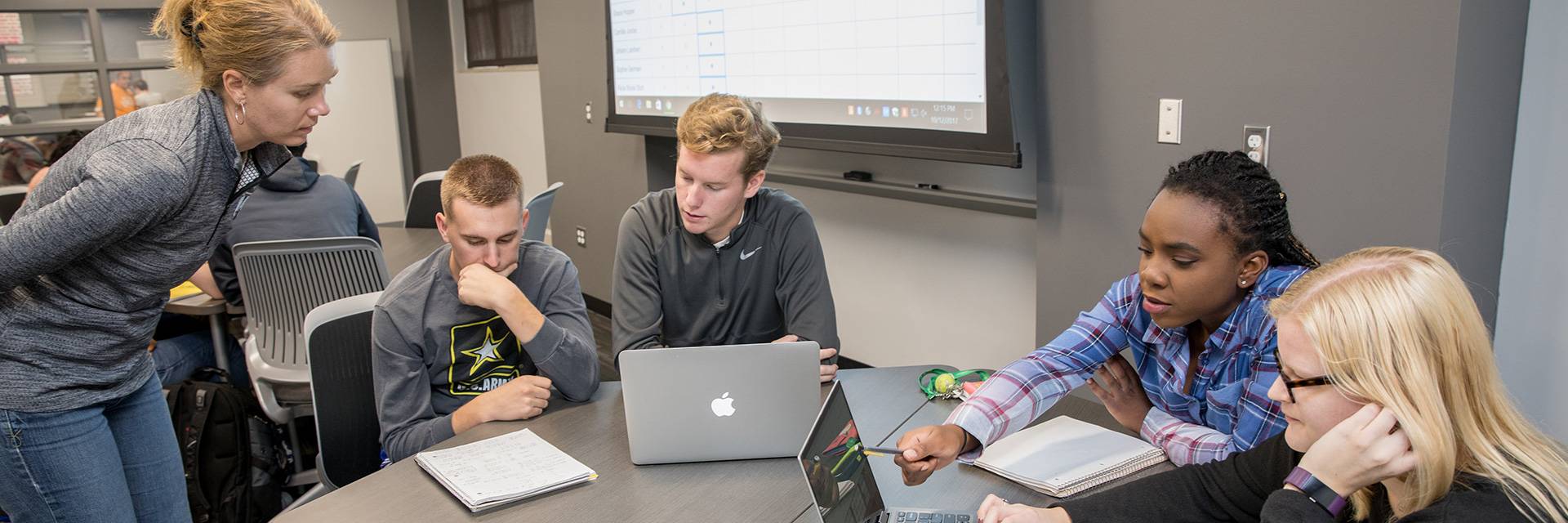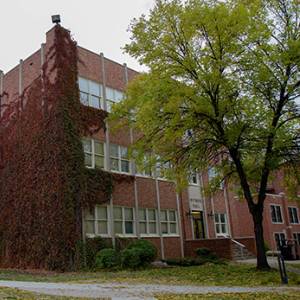
Mathematics & Statistics
Dedicated to preparing future mathematicians and leaders, we educate both undergraduate and graduate students majoring in Math.
We are also proud to provide courses designed to meet the needs of students across campus in business, engineering, elementary and secondary education, meteorology, and the physical, social and biological sciences.
Studying mathematics builds the problem-solving and logical-thinking skills that are valued in any career.
Program Highlight
B.S. with Major in Mathematics with Emphasis in Actuarial Science
UND now offers a track that allows you to earn a mathematics degree while also acquiring the business and finance background necessary for an actuarial sciences career. The track includes courses designed to prepare you with the computational and analytical skills you'll need for the entry-level actuarial science exams. You'll explore quantitative finance and risk management, and have access to internship opportunities that can provide hands-on experience.
Explore the Math Academic Programs
Learn more about admissions, tuition and fees, financial aid, courses and more.
Minors
UND also offers a Minor in Mathematics or Statistics, as well as a Minor in Mathematics for Elementary Educators.
Department Mission
Mathematics is a unique discipline which is neither an art nor a science. However, mathematics, being the language of our natural world, shares many characteristics of the social and physical sciences as well as the fine arts.
Like artists, mathematicians are extremely creative and appreciative of beauty and elegance in their work. As mathematician G.H. Hardy stated, “Beauty is the first test. There is no permanent place in the world for ugly mathematics.” Unlike a work of traditional art, which can be appreciated by many, training is needed for an observer to appreciate a fine piece of mathematics.
Mathematics is used to model the world around us. Mathematicians look for patterns and then develop tools to analyze and understand these patterns. Experimentation, which is the basis of most research in the physical and social sciences, is not typically a feature of research in mathematics.
The mission of the Mathematics & Statistics Department at the University of North Dakota is multi-faceted. We serve as advocates and promoters of the discipline. We believe all people can learn to appreciate mathematics if given the proper support and guidance.
- We are dedicated to the education and training of our undergraduate and graduate majors in Mathematics and our graduate majors in Applied Statistics. We also offer courses designed to meet the needs of students in business; engineering; physical, social, and biological sciences; and elementary and secondary education.
- The main fields of opportunity in mathematics today are teaching, statistical data analysis, mathematics in industry, mathematics in government, actuarial mathematics, data science and machine learning.
- Research in contemporary theoretical and applied mathematics and statistics is another key contribution of the Mathematics & Statistics Department in support of the university’s mission. Collaborative research with other departments and colleges which addresses one of UND’s Grand Challenges is of particular importance.
- Faculty in the department are active in service at the local, regional, state, and national levels. The department’s annual Math Track Meet offers an opportunity for teams of students from schools in the Grand Forks area to spend a day at UND in friendly competition on math exams. Active participation in mathematical organizations such as the Mathematical Association of America and the National Council of Teachers of Mathematics by faculty members keeps the department apprised of current trends and practices in the discipline and maintains a line of communication with our colleagues across the country and internationally.




